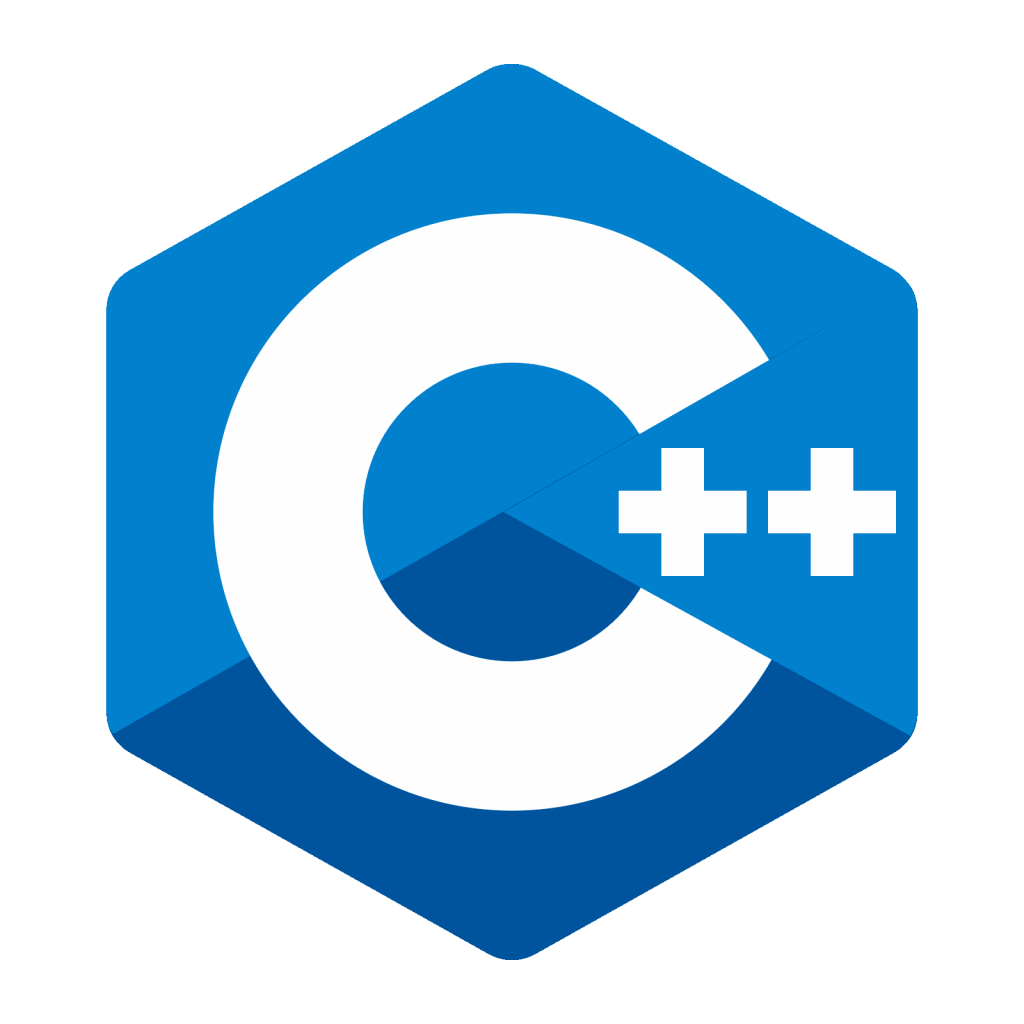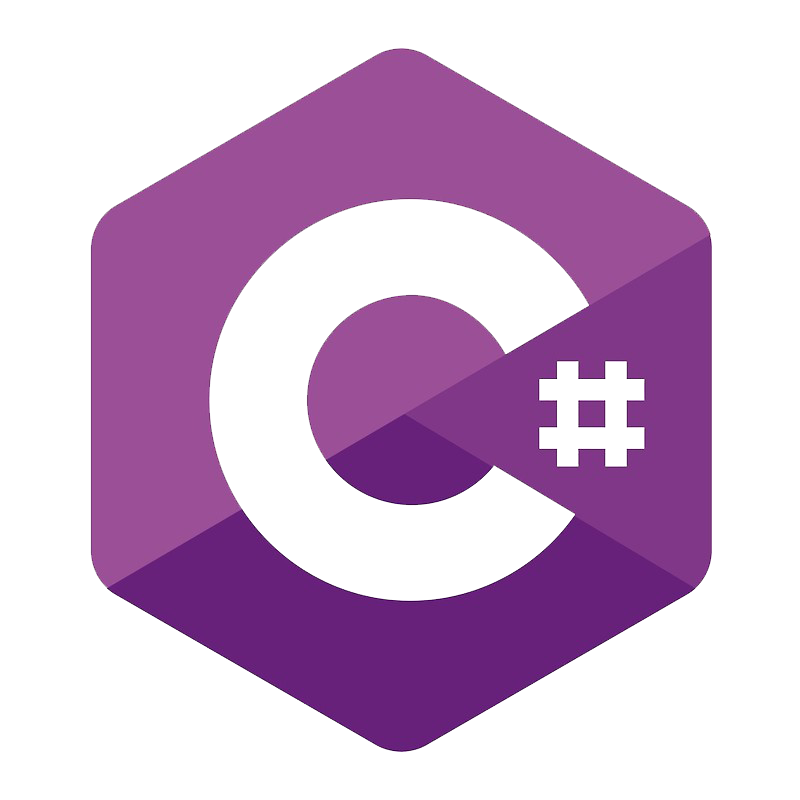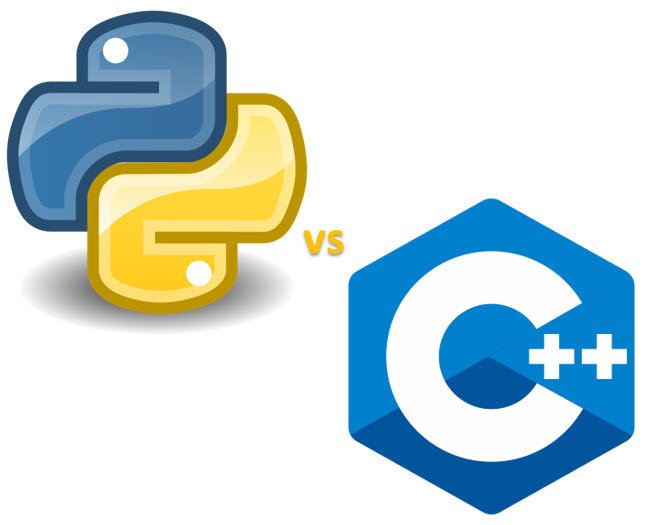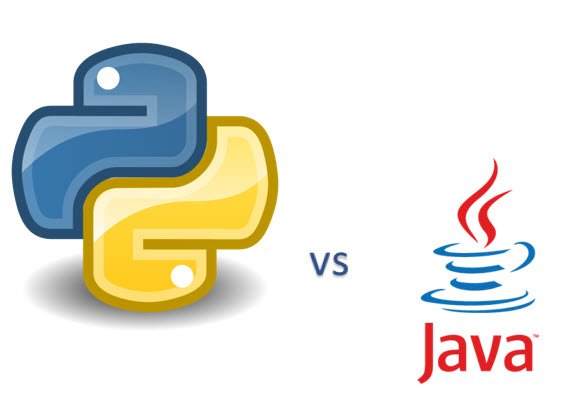Top 5 Programming Languages In Demand In 2023
Are you starting your career in software development? Are you a senior developer in search for a new programming language to learn, maybe? We got you covered! In this post we give you the top 5 programming languages in high demand, popular among modern programmers and employers alike. As a bonus, we highlight their main characteristics and key benefits.
Table Of Contents
1. Python
Python is a high-level, interpreted programming language that is widely used in various fields such as data science, machine learning, web development, scientific computing, and more. It has gained popularity over the years due to its simple syntax, readability, and vast community support.
Python is known for its ease of use and versatility. It has a vast number of libraries and frameworks that can be used for various purposes, making it a popular choice for both beginners and experienced developers. Some popular Python libraries and frameworks include NumPy, Pandas, Matplotlib, Django, Flask, TensorFlow, and more.
Python’s popularity in data science and machine learning has led to the development of many powerful libraries, such as NumPy, Pandas, Scikit-learn, and TensorFlow. These libraries enable data analysis, visualization, and machine learning tasks to be performed efficiently and easily. Python is also popular in web development, with frameworks like Django and Flask providing robust and scalable solutions.
Moreover, Python has a vast community of developers, which ensures that it is constantly evolving and improving. Python’s simplicity, readability, and versatility make it an excellent choice for developing complex projects with minimal code.
Overall, the least surprising programming language trend that we anticipate for 2023, as we can see from the table below, is the continuing popularity of Python as it has already been increasing rapidly over the past few years. Python is currently one of the most popular programming languages in the world!
1.1 Pros
- Easy to learn: Python has a simple syntax and clean code that is easy to read and understand. This makes it a great language for beginners to learn and also reduces the development time.
- Large community: Python has a vast community of developers who contribute to open-source libraries, frameworks, and tools. This ensures that Python is always up-to-date and provides solutions to common problems.
- Versatile: Python is a versatile language that can be used for various purposes, such as web development, data analysis, scientific computing, machine learning, and more.
- Powerful libraries and frameworks: Python has a vast number of libraries and frameworks that make development faster and more efficient. Some popular libraries include NumPy, Pandas, Matplotlib, Django, Flask, and more.
- Cross-platform support: Python can run on multiple platforms such as Windows, Linux, and macOS. This makes it easy to develop and deploy applications on different platforms.
- High demand: Python is in high demand among employers, making it a popular language among developers looking for job opportunities.
- Good for rapid prototyping: Python’s simplicity and readability make it a great language for rapid prototyping. This means that developers can quickly create a prototype of an application and test its functionality before building the final version.
1.2 Cons
While Python is a popular and widely-used language with many strengths, it is not without its limitations and disadvantages. These include performance, limitations in mobile computing, the GIL limitation, high memory consumption, and complexity for larger projects. However, these limitations can often be mitigated with proper optimization, design, and management strategies.
- Performance: Python is an interpreted language, which means that it can be slower than compiled languages like C++ or Java. This can be a disadvantage for performance-critical applications, such as those that require real-time data processing or large-scale scientific computing.
- Weak in mobile computing: While Python can be used for mobile app development, it is not as well-suited for this purpose as other languages like Java or Swift. This is because Python is an interpreted language and can be slower than native languages when it comes to mobile app performance.
- GIL Limitation: Python has a Global Interpreter Lock (GIL) that can limit performance in multi-threaded applications. This means that only one thread can execute Python bytecode at a time, which can limit concurrency and performance in certain types of applications.
- Memory consumption: Python’s dynamic typing and garbage collection can lead to high memory usage in some cases, which can be a concern for memory-limited environments.
- Complexity for larger projects: Python is a versatile and flexible language, but this can also lead to increased complexity and difficulty in managing large codebases. This can be a challenge for larger projects or for teams working on complex applications.
2. C
C is a high-level programming language that was originally developed in the 1970s for system programming and has since become one of the most widely used programming languages. C is used by a wide range of organizations and developers for various applications. Many operating systems, including Windows, Linux, macOS, and Unix, are written in C. The low-level access to hardware and memory management features of C make it ideal for developing operating systems.
C is commonly used in embedded systems, such as microcontrollers, automotive systems, and industrial control systems. The small code size and efficient use of system resources make C a popular choice for developing embedded systems. it is also used for developing system software, such as device drivers, file systems, and network protocols. The low-level access to hardware and memory management features of C make it a popular choice for developing system.
Many video games are developed using C, as it provides efficient access to hardware resources, such as graphics and sound cards. C is used for developing database systems, such as MySQL and PostgreSQL. It is commonly used in the development of high-frequency trading systems and other financial applications.
Overall, C is used by a wide range of organizations and developers for various applications, from operating systems and embedded systems to game development and financial applications.
2.1 Pros
- Efficiency: C is a fast and efficient language that allows low-level memory access, which makes it ideal for system programming, embedded systems, and other applications that require direct hardware access.
- Portability: C code can be compiled on different platforms, making it a portable language.
- Widely used: C is a popular language with a large community of developers who contribute to open-source libraries and frameworks.
- Standard library: C has a rich set of standard libraries that provides a variety of functions that are commonly used in programming.
- Low-level programming: C allows low-level programming and direct hardware access, which is useful for writing device drivers and other system-level code.
2.2 Cons
While C is a popular and widely-used programming language, it also has some limitations and disadvantages to consider. Here are some of the cons of using C:
- Complexity: C is a low-level language, which means that it can be more difficult to learn and use than higher-level languages like Python or Java. C requires a good understanding of computer architecture, memory management, and low-level programming concepts.
- Memory management: C requires manual memory management, which can be error-prone and lead to memory leaks or crashes if not managed correctly. This can be a challenge for less experienced developers.
- Lack of built-in data structures: C does not have built-in support for data structures like lists or dictionaries, which can make certain programming tasks more difficult and time-consuming.
- No exception handling: C does not have built-in support for exception handling, which can make it more difficult to handle error conditions and write robust code.
- Limited standard library: C’s standard library is relatively limited compared to other languages, which can make it more difficult to perform certain programming tasks.
- Lack of portability: C code can be platform-dependent, which means that it may not run on different operating systems or architectures without modification.
Overall, while C is a powerful and widely-used language, it is not without its limitations and disadvantages. These include complexity, manual memory management, lack of built-in data structures, lack of exception handling, limited standard library, and limited portability. However, these limitations can often be mitigated with proper programming practices and libraries or frameworks.
3. C++
C++ is a high-level programming language that is an extension of the C language. It was developed in the 1980s and is widely used for developing a variety of applications. It’s popularity is highly rising since it has climbed to 3rd posistion in addition of the 4th that it was only a year ago. C++ is commonly used in developing system software, such as operating systems, device drivers, and compilers. It is often used in game development due to its performance and ability to access hardware resources, such as graphics and sound cards.
C++ is used for developing a wide range of applications, including desktop applications, enterprise applications, and web applications. C++ is used in developing embedded systems, such as microcontrollers, automotive systems, and industrial control systems. C++ is used in the development of high-frequency trading systems and other financial applications.
Overall, C++ is a powerful language that is used in a variety of applications, from system software and embedded systems to game development, application software, and financial applications. Its support for object-oriented programming, high-performance capabilities, and cross-platform support make it a popular choice for developers.
3.1 Pros
- Object-oriented programming: C++ is an object-oriented language that supports the creation of classes and objects. This allows for modular and reusable code.
- High performance: C++ is a high-performance language that allows for low-level memory manipulation and direct hardware access.
- Standard library: C++ has a rich set of standard libraries that provide a variety of functions that are commonly used in programming.
- Cross-platform support: C++ code can be compiled on different platforms, making it a portable language.
- Large community: C++ has a large community of developers who contribute to open-source libraries and frameworks.
3.2 Cons
While C++ is a popular and widely-used programming language, it also has some limitations and disadvantages to consider. Here are some of the cons of using C++:
- Complexity: C++ is a complex language that requires a good understanding of computer architecture, memory management, and low-level programming concepts. It can be more difficult to learn and use than higher-level languages like Python or Java.
- Memory management: Like C, C++ requires manual memory management, which can be error-prone and lead to memory leaks or crashes if not managed correctly. This can be a challenge for less experienced developers.
- Large codebase: C++ can lead to large and complex codebases, which can be difficult to maintain and debug. This can be a challenge for larger projects or for teams working on complex applications.
- Compilation time: C++ compilation can be slow, especially for large codebases. This can slow down the development process and make it more difficult to iterate on code changes.
- Portability: While C++ is generally portable, there may be platform-dependent features or differences that can make it more difficult to write cross-platform code.
- Compatibility issues: Different versions of C++ may have compatibility issues, which can make it more difficult to maintain code over time.
Overall, while C++ is a powerful and versatile language, it is not without its limitations and disadvantages. These include complexity, manual memory management, large codebase, slow compilation time, portability issues, and compatibility issues. However, these limitations can often be mitigated with proper programming practices, libraries or frameworks, and good development practices.
4. Java
Java is a high-level, object-oriented programming language that is designed to be portable and platform-independent. It was developed by James Gosling and his team at Sun Microsystems (now a subsidiary of Oracle Corporation) in the mid-1990s.
Java is known for its “write once, run anywhere” feature, which allows Java code to run on any platform that has a Java Virtual Machine (JVM) installed. This makes Java a popular choice for developing applications that need to run on multiple platforms, such as web applications and mobile apps.
Java is used in a wide range of applications, including web development, mobile app development, enterprise applications, and scientific computing. It is also a popular language for teaching introductory computer science courses.
Overall, Java is a versatile and powerful language that can be used to develop a wide range of applications. Its platform independence, large standard library, object-oriented programming features, and built-in security make it a popular choice for developing enterprise applications, web applications, mobile apps, and more.
4.1 Pros
There are several reasons why Java is a popular programming language and why it is a good choice for developing a wide range of applications:
- Platform independence: Java’s “write once, run anywhere” feature makes it possible to write code once and run it on any platform that has a Java Virtual Machine (JVM) installed. This makes Java a great choice for developing applications that need to run on multiple platforms.
- Large standard library: Java includes a large standard library of classes and methods that can be used to build a wide range of applications. This can save developers time and effort by providing pre-built functionality that can be easily integrated into their applications.
- Object-oriented programming: Java is based on the object-oriented programming paradigm, which allows developers to organize code into reusable, modular components. This makes it easier to write code that is easy to maintain and update over time.
- Memory management: Java uses automatic garbage collection to manage memory, which makes it easier for developers to write code without having to worry about low-level memory management.
- Security: Java includes built-in security features, such as a security manager and a sandbox environment, which help to protect against malicious code.
- Community support: Java has a large and active community of developers who contribute to open-source libraries and tools. This can make it easier for developers to find solutions to common problems and to get help when they need it.
4.2 Cons
While Java is a popular and widely-used programming language, it also has some limitations and disadvantages to consider. Here are some of the cons of using Java:
- Performance: Java is an interpreted language, which means that it can be slower than compiled languages like C++ or even other compiled languages like Go or Rust. This can be a disadvantage for performance-critical applications, such as those that require real-time data processing or large-scale scientific computing.
- Memory consumption: Java’s automatic memory management can lead to high memory usage in some cases, which can be a concern for memory-limited environments.
- Overhead: Java’s runtime environment and virtual machine can add overhead and complexity to some applications. This can be a disadvantage for applications that need to run in resource-constrained environments.
- Complexity: Java is a complex language that requires a good understanding of computer architecture, memory management, and object-oriented programming concepts. It can be more difficult to learn and use than higher-level languages like Python or JavaScript.
- Limited control over hardware: Because Java is an interpreted language, it can be more difficult to optimize code for specific hardware architectures. This can be a disadvantage for applications that require low-level access to hardware resources.
- Limited support for parallelism: While Java has built-in support for multithreading, it can be challenging to write efficient parallel code in Java. This can be a disadvantage for applications that require high levels of parallelism.
Overall, while Java is a popular and widely-used language with many strengths, it is not without its limitations and disadvantages. These include performance, memory consumption, overhead, complexity, limited control over hardware, and limited support for parallelism. However, these limitations can often be mitigated with proper optimization, design, and management strategies.
5. C#
C# is a modern, object-oriented programming language that was developed by Microsoft as part of the .NET platform. C# is designed to be simple, type-safe, and efficient, and it is widely used for building Windows desktop applications, web applications, and games.
Overall, C# is a versatile and powerful language that offers many benefits to developers, including a simple syntax, object-oriented programming, automatic garbage collection, type safety, integration with .NET, cross-platform support, and high performance.
5.1 Pros
Here are some of the key features and advantages of C#:
- Simple syntax: C# has a simple, easy-to-learn syntax that is similar to other popular programming languages, such as Java and C++.
- Object-oriented programming: C# is an object-oriented programming language, which allows developers to write code that is modular, reusable, and easy to maintain.
- Garbage collection: C# uses automatic garbage collection to manage memory, which makes it easier for developers to write code without having to worry about low-level memory management.
- Type safety: C# is a type-safe language, which means that it helps to prevent common programming errors, such as type mismatches and null reference exceptions.
- Integration with .NET: C# is designed to work seamlessly with the .NET platform, which provides a wide range of libraries and tools for building applications.
- Cross-platform: C# can be used to build applications for Windows, Linux, and macOS, and it is supported by the .NET Core framework, which is a cross-platform version of .NET.
- Performance: C# is a high-performance language that can be used to build applications that require fast execution times, such as games and high-performance web applications.
- Large developer community: C# has a large and active developer community, which means that there are many resources available, including libraries, frameworks, and tools, that can help you to build applications more quickly and efficiently.
5.2 Cons
While C# is a popular and widely-used programming language, it also has some limitations and disadvantages to consider. Here are some of the cons of using C#:
- Limited platform support: C# was originally designed to run on Microsoft’s .NET framework, which means that it may not be well-supported on other platforms, such as Linux or macOS.
- Memory management: C# relies on automatic memory management, which can lead to high memory usage in some cases. This can be a concern for memory-limited environments.
- Complexity: C# is a complex language that requires a good understanding of computer architecture, memory management, and object-oriented programming concepts. It can be more difficult to learn and use than higher-level languages like Python or JavaScript.
- Performance: While C# can be fast, it may not be as fast as lower-level languages like C++ or Rust. This can be a disadvantage for performance-critical applications.
- Dependency on Microsoft technologies: C# is closely tied to Microsoft technologies, such as Visual Studio and .NET, which can make it more difficult to use in non-Microsoft environments.
- Limited community support: While C# has a large community of developers, it may not have as many resources and libraries available as other languages like Python or Java.
Overall, while C# is a powerful and versatile language with many strengths, it is not without its limitations and disadvantages. These include limited platform support, memory management, complexity, performance, dependency on Microsoft technologies, and limited community support. However, these limitations can often be mitigated with proper optimization, design, and management strategies.
Below we will try to make a comparison among 3 powerul programming languages highlighting their disadvantages and advantages among each other.
6. Python Vs C++
With the huge rise of C++ over the past year many may wonder is C++ better than Python? Python and C++ are two popular programming languages with different features, strengths, and weaknesses. Below we will explore some key differences between the two:
- Syntax: Python has a simple and easy-to-learn syntax, while C++ has a more complex syntax that can be challenging for beginners.
- Type System: Python is dynamically typed, which means that variable types are determined at runtime. C++ is statically typed, which means that variable types are determined at compile time.
- Memory Management: Python has automatic memory management, while C++ requires manual memory management.
- Performance: C++ generally performs better than Python, especially for tasks that require heavy computations or direct access to hardware.
- Application Areas: Python is often used for data analysis, web development, and automation tasks, while C++ is often used for system programming, game development, and other performance-critical applications that require direct access to hardware.
- Libraries and Frameworks: Python has a large set of libraries and frameworks that make it easy to write code quickly and efficiently. C++ also has a large set of standard libraries, but it requires more effort to set up and use external libraries.
Having seen the specific advantages of Python, let’s explore now the advantages of C++ over Python.
- Performance: C++ is generally faster than Python, especially for tasks that require heavy computations or direct access to hardware. This is because C++ is a compiled language that is closer to the machine code, while Python is an interpreted language that requires an interpreter to execute its code.
- Control over Memory Management: C++ allows developers to have more control over memory management, while Python has automatic memory management. This makes C++ better suited for applications that require efficient memory usage, such as system programming or game development.
- Direct access to hardware: C++ provides direct access to hardware, which is important for developing low-level systems applications, such as device drivers or embedded systems.
- Portability: C++ is a portable language, meaning that it can be compiled and run on different platforms. This makes it easier to write code that can be run on different operating systems or hardware architectures.
- Wide range of libraries: C++ has a wide range of libraries and frameworks that can be used to develop complex applications, such as Boost, Qt, or OpenGL. These libraries provide powerful tools for developers and enable them to write efficient and high-performance code.
In conclusion, C++ has several advantages over Python in certain contexts, especially for applications that require high performance, efficient memory management, or direct access to hardware, which makes it the best choice for a whole range of applications including system programming. However, Python has its own strengths, such as ease of use, simplicity, and a wide range of libraries and frameworks that make it a popular choice for data analysis, web development, and automation tasks and that is the reason that is still the best choice for machine learning development!
C++ and Python are two different languages that have very diverse features as well as applications but they both have one thing in common that is the strong support for object-oriented programming. All in all the choice between Python and C++ depends on the specific requirements of the task at hand.
7. Python Vs Java
With the drop of its 3rd position in Java many may wonder is Java programming language dying while Python still remains the king in the first place?
Let’s try below to feature some of the similarities of those two powerful languages and potential key differences between them.
Here are some of the main differences between Python and Java:
- Syntax: Python has a simpler and more concise syntax than Java, which makes it easier to learn and write code. Java, on the other hand, has a more verbose syntax, which can make it more difficult for beginners.
- Type system: Python is a dynamically-typed language, which means that variables do not need to be declared with a specific type before they are used. Java, on the other hand, is a statically-typed language, which means that variables must be declared with a specific type before they are used.
- Performance: Java is generally faster than Python, especially for CPU-intensive tasks. Python’s interpreter and dynamic typing can make it slower than compiled languages like Java.
- Libraries and frameworks: Both Python and Java have a large number of libraries and frameworks available, but they tend to be focused on different areas. Python is popular for data science, machine learning, and web development, while Java is popular for enterprise development, Android development, and large-scale applications.
- Community and ecosystem: Python has a large and active developer community, with many resources and tools available, while Java has a more established and mature ecosystem, with a wide range of tools and frameworks available for enterprise development.
Many may wonder in what language should i invest to learn first as a new developer?The choice between learning Java or Python as a first language will depend on your specific goals and interests. Here are some factors to consider when making this decision:
- Learning curve: Python has a simpler and more concise syntax than Java, which makes it easier to learn and write code. This can make it a good choice for beginners who are just starting to learn programming.
- Application focus: Python is popular for data science, machine learning, and web development, while Java is popular for enterprise development, Android development, and large-scale applications. If you have a specific application or field of interest in mind, it may be worth choosing the language that is most commonly used in that area.
- Job market: Both Java and Python are popular languages with a high demand for skilled developers. However, the job market may vary depending on your location and the specific industry you are interested in.
- Personal preferences: Ultimately, the best language to learn first is the one that you enjoy working with and find most interesting. If you have a particular interest in a language or field, it may be worth pursuing that even if it is not the most commonly used language.
Overall, both Java and Python are good choices for a first language, and each has its own strengths and weaknesses. It may be helpful to experiment with both languages and see which one you enjoy working with more before committing to one as your primary language.
8. Conclusion
As a conclusion all the above languages are still very popular for their own purposes. Python was, still is, and will be among one of the programmers top choice of programming language. It’s most popular for data science, machine learning, web development, and scientific computing. C++ is certainly gaining fame due to the reasons we mentioned above and its popularity is concentrating to system programming, game development, and performance-critical applications. C# is more popular for Windows development, game development, and enterprise applications.
Lastly Java is cetrainly not dying. There are several million people learning Java every year. Java is popular for enterprise development, Android development, and large-scale applications. What is happening is that Java programming language is not growing at the same rate as others, while the rest are gaining more and more ground every year! If you love coding in Java then you are the one who is responsible for its future or not!













“Java is an interpreted language” I would have accepted that back in 1997 but have you ever heard of JIT, AOT-Compiling or Adaptive Compiling? Search for Hotspot, GraalVM or J9. GraalVM is about 5 years old but the other two exist for 20+ years (and even before was a simple JIT and Excalibur) “While Java has built-in support for multithreading, it can be challenging to write efficient parallel code in Java.” In all languages it is an challenge to write efficient parallel code, at least unless the problem is trivial to parallelize. But Java makes it easy with a ton… Read more »
Additionally, while it is true that writing efficient parallel code can be a challenge in any language, Java does provide built-in support for multithreading and various abstractions that can help simplify parallel programming. Furthermore, the language provides a memory model that guarantees thread-safe operations and ensures that concurrent access to shared data is handled correctly.
Which programming language should I learn in 2023 to easily find a job, with a high salary? Donkey Kong
Python is a great programming language that has simple, clear, and readable syntax. It supports many object-oriented, procedural, and functional programming paradigms. It has a rich and powerful standard library that provides many useful features for various fields. It also has a large and enthusiastic community that is willing to share knowledge and solve problems. Python is a flexible, efficient, and fun programming language.
A very useful article for those who are going to learn programming languages. I wanted to create an application for my business, so I decided to start learning Python. But as I understood from the article, I need to know Java to create a mobile application?
Java is widely used for developing a variety of applications, including desktop software, mobile apps, web applications, enterprise systems, and embedded systems. It has a large ecosystem of libraries, frameworks, and tools that make it versatile and flexible for different types of development – https://devoxsoftware.com/technology/java-development-company/
Now most of the major specialists in this field use only the most popular languages. I would choose c++ from this list because it is the newest and simplest programming language with which people will have fewer problems and the work will be done many times faster
This article discusses Python, C++, Java, and C#, highlighting their strengths and applications. As a web developer, I find Python’s versatility in data science and web development appealing. C++’s efficiency for system programming intrigues me. My interest in Android apps and enterprise development makes Java compelling. While I appreciate C#’s role in Windows and game development, Python’s broad utility resonates most with me.